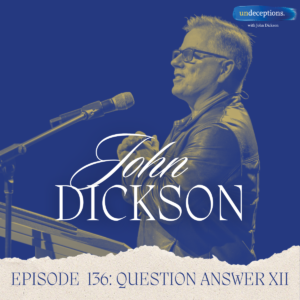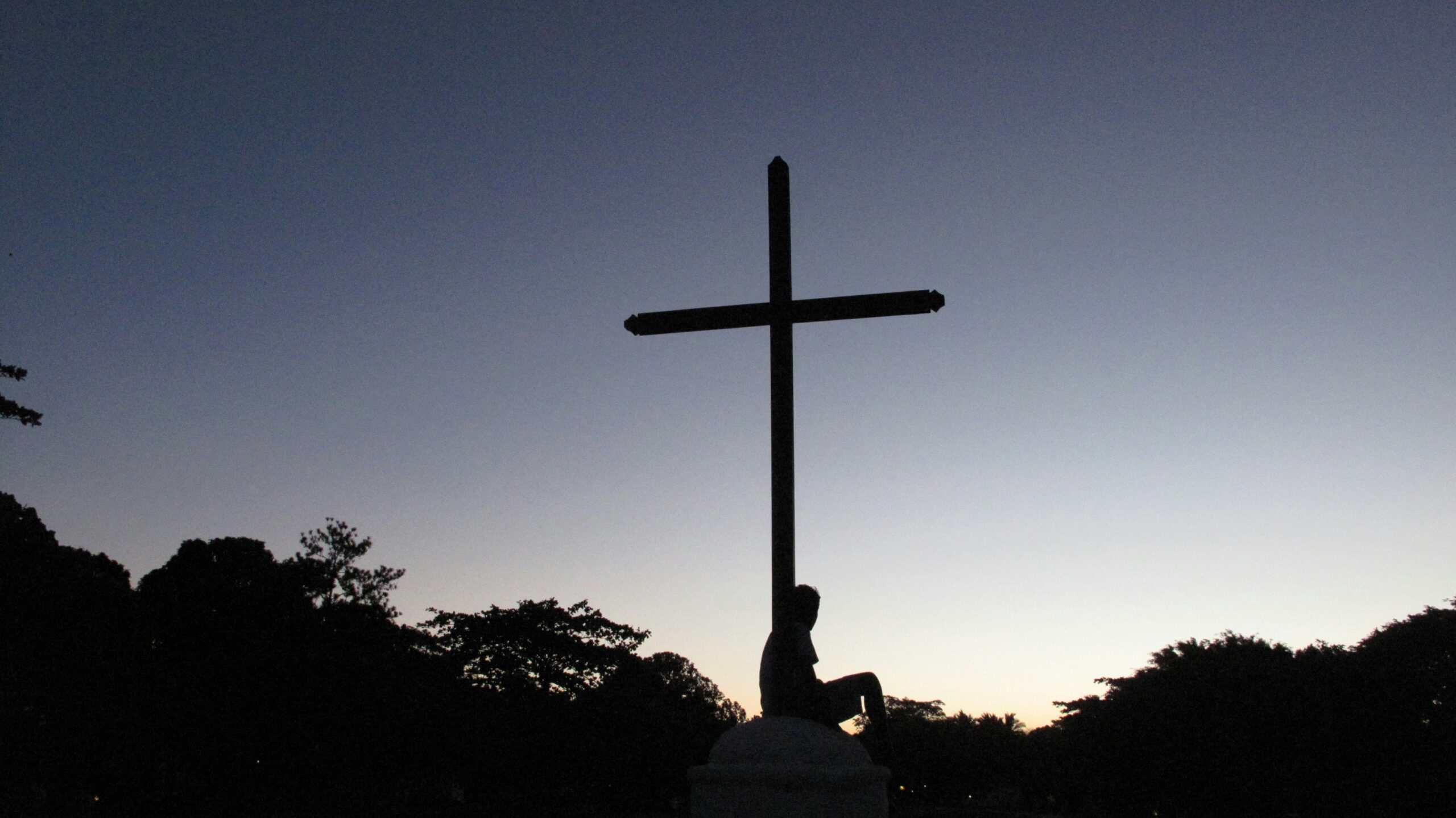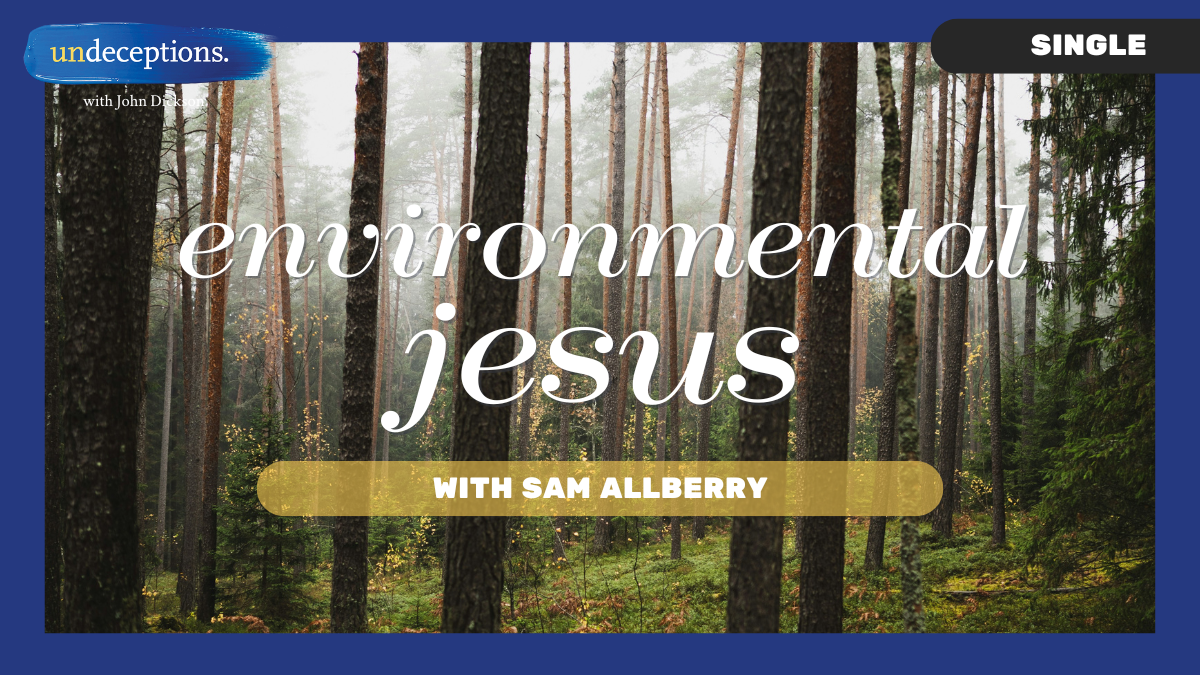This article features one of John’s responses to a listener question from our recent Season 12 Q&A episode (listen to the episode here).
Listener Question
I have been thinking lately of the overt and visceral reactions exhibited by some people, including Christians I know, to the Ukraine and Russian wars, or the present Gaza-Israel situation. They seemingly believe we live in the worst time ever.
While there are many possible reasons, I wonder if, particularly for Christians, some of the issue is related to a declining understanding of, or even interest in, eschatology and this foundation of theological hope.
How can we recover a biblical eschatology that will help Christians live and minister in the world today with real hope?
John’s Answer
We’ve certainly talked about this before on the show, but basically, Christians have sometimes made terrible mistakes on this topic, and it’s turned a lot of people in the other direction.
They’ve obsessed about these last things. They’ve tried to use the Bible as a kind of roadmap to the unfolding of history, instead of what it provides – a stunning portrait of God’s ultimate ends for the world.
In the 1970s and 80s, there was a lot of weirdness and wackiness around The Bible.
In 1970, the evangelist Hal Lindsay published his book, The Late Great Planet Earth. He also had Satan is Alive and Well on Planet Earth and Countdown to Armageddon.
The Late Great Planet Earth was the number one bestselling nonfiction book of the decade, according to the New York Times.
Lindsay saw the Book of Revelation as being all about predicting the geopolitics of his generation, from the founding of Israel in 1948 through to Armageddon, where the Soviet Union invaded Israel, which he said would happen in 1988.
It continues today.
In Australia, there was a Christian group that took out a full-page ad in the Canberra Times arguing that all the economic troubles we’re facing were foretold in Revelation.
The name of the Beast of Revelation 13, they revealed, was … Pope Francis!
As a result of all of this, a lot of sensible people completely turn their back on eschatology.
They don’t want to be associated with the crazies, and perhaps that’s fair enough, but you’re not going to track with Christianity very far if you reject all eschatology, because Christianity is fundamentally eschatological.
Everything Christians believe has a future element.
The creation narrative in the book of Genesis isn’t just a description of the past, it’s a kind of promise of the restoration of all creation.
King David in the Old Testament isn’t just a remarkably successful, if flawed, king. He was a picture of the future of God’s future king and future kingdom.
Jesus made the kingdom of God the very centre of his preaching.
His healings weren’t just acts of kindness. They were little previews of the restoration of all things in that future kingdom.
His death on the cross was an absorption into himself, of the penalty of judgment day.
His resurrection is described in the New Testament as a kind of deposit or down payment of the resurrection of all things in God’s future new creation, and much of the ethical teaching of the rest of the New Testament has this future kingdom in view.
We know the kingdom of God will establish righteousness and justice.
Christians live by the values of that eternal kingdom in our present day.
It’s as if Christians have seen the dawning of a new day just on the horizon and so they live like the new day is already here.
This outlook – this eschatological outlook – protects against various kinds of extremes we sometimes find.
On the one hand, some choose not to get too involved in the world at all, because they’re waiting for the kingdom to come and sort everything out.
But in the New Testament, the fact that God’s Kingdom is coming is a really good reason to get busy for the kingdom.
Now, on the other hand, others think they can build a utopia, God’s kingdom here on earth, and that their role is to take over legislative bodies, the media, educational institutions, and everything else.
This completely misses the fact that in the New Testament, the future kingdom will never be the work of human beings.
It’s the glorious miracle of God.
The Christian’s role before the kingdom is to live as little signs or previews of that kingdom by pursuing justice, love, peace, and so on, always knowing that we will never fully achieve those things in this world.
I suppose others are just despondent. They look at the injustice and the bloodshed of our world and they despair.
Eschatology tells us that God’s kingdom will come and make all things well, and in the power of God’s spirit, we can live by that future kingdom here and now.
Eschatology gives amid dejection a motivation to be busy in God’s work in the present.
Don’t give up on eschatology. For thousands of years, people have turned to the Bible for guidance and instruction.


Want to be further undeceived?
Check out our network of podcasts and articles in the Undeceptions Library.















































